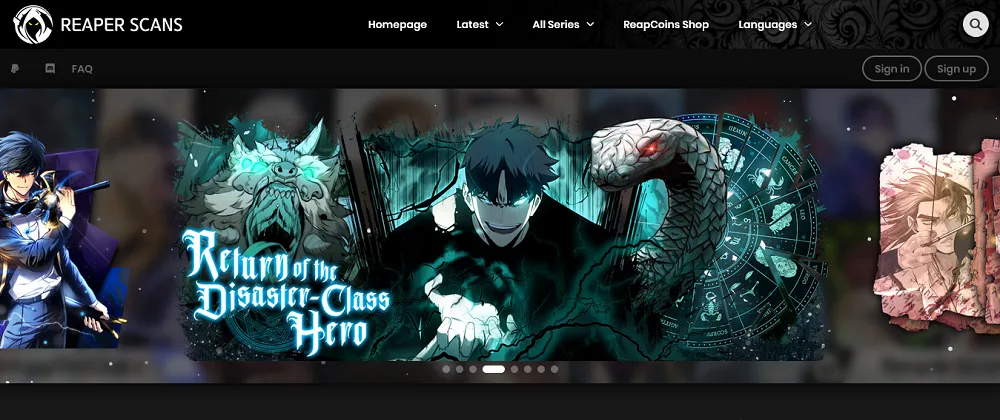Digital comics fans worldwide felt shockwaves this past May. Reaper Scans, a beloved platform for Korean manhwa and web novels, permanently closed its virtual doors. This shutdown marked the end of an era for millions of readers who’d grown attached to the site’s offerings.
What Made Reaper Scans Special?
Starting its journey in 2019, this platform carved out a unique niche. It specialized in translating Korean comics and novels for global audiences. Many series weren’t available in English anywhere else. Others had delayed official releases that frustrated eager readers.
The site quickly gained momentum. Quality translations drew praise from users across continents. Fast chapter releases often outpaced official sources. Popular titles like “Solo Leveling” and “Nano Machine” attracted massive followings through the platform.
But it wasn’t just about reading. The community aspect flourished beautifully. Fans discussed plot developments, shared theories, and celebrated favorite characters together. This social element transformed simple reading into shared experiences.
By early 2025, monthly visitor numbers reached an astounding 13 million. These statistics demonstrated the platform’s incredible reach and influence within the digital comics domain.
The Legal Storm That Changed Everything
Success came with complications. Reaper Scans operated in murky legal territory from day one. Copyright issues lurked beneath the surface throughout its existence.
May 9, 2025, brought devastating news. Kakao Entertainment, a major South Korean media corporation, issued a cease and desist order. This legal action directly targeted the site’s unauthorized distribution practices.
| Timeline | Event |
| 2019 | Reaper Scans launches |
| Early 2025 | 13 million monthly visitors |
| May 9, 2025 | Shutdown announcement |
| May 2025 | Permanent closure |
The platform’s official statement was clear: “After receiving a Cease and Desist from Kakao Entertainment, we have decided to permanently shut down Reaper Scans and stop any and all distribution of unauthorized fan translations.”
Understanding the Copyright Dilemma With Reaper Scans
Copyright protection exists for good reasons. Creators deserve compensation for their artistic work. Publishers invest significant resources in developing and marketing content. When unauthorized sites distribute this material freely, original creators lose potential income.
Reaper Scans fell into the “scanlation” category. These sites translate and share comics without official permission. While fans appreciate accessibility, this practice violates intellectual property rights.
The situation became more complex when some reports suggested monetization elements. Charging fees for unauthorized content crosses clearer legal lines. Publishers naturally respond more aggressively to profit-driven infringement.
Ripple Effects Across the Community
The closure devastated countless readers worldwide. Many had relied on the platform for exclusive access to their favorite series. Finding alternatives proved challenging for international fans.
Social media platforms buzzed with emotional reactions. Reddit threads filled with nostalgic memories and frustrated complaints. Some users immediately began searching for replacement sites, despite similar legal risks.
What This Means for Future Fan Sites like Reaper Scans?
This shutdown sends unmistakable signals to other scanlation groups. Publishers are becoming increasingly aggressive about protecting their intellectual property. Legal enforcement efforts are expanding and becoming more effective.
Supporting Creators Properly
The Reaper Scans closure highlights a crucial industry shift. Official platforms are becoming more accessible and comprehensive. Supporting creators through legitimate channels ensures sustainable content creation.
While the platform’s end disappointed many fans, it represents progress toward fairer compensation for artists and writers. The future of digital comics depends on balancing accessibility with creator rights.
This transformation, though painful for some readers, ultimately benefits the entire ecosystem of digital storytelling.


